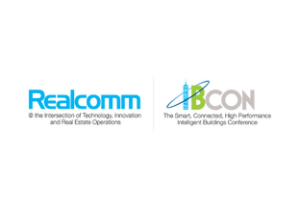How to improve commercial property tenant retention
In the competitive commercial real estate market, commercial tenant retention is more critical than ever.
Retaining your commercial tenants means having a consistent and predictable income stream, as well as avoiding the costs of tenant turnover. Apart from the financial benefits, having long-term tenants also acts as a testimony to the quality of your commercial property, location, and property management.
Commercial property managers know that effective commercial tenant retention and engagement doesn’t end when the lease is signed. It is an all-encompassing approach that combines attracting the right prospects, keeping them happy, and staying ahead of renewals.
In this guide, we offer our top tips to ensure commercial property tenant retention.
Commercial Real Estate Software
Increase efficiency, reduce costs, and maximize portfolio performance.
Get a Demo
Top 5 tips to improve commercial tenant retention
High commercial tenant turnover can lead to a host of problems. Having vacant spaces can be a hit to your financial stability and property reputation. There’s also the increased time, effort, and marketing costs that go into acquiring new tenants.
Here are our top tips to enhance commercial property tenant retention and ensure your property remains in high demand:
1) Attract the right tenants
A commercial property’s retention success starts with attracting the right kind of tenant. A well-matched tenant provides stability, ensures consistent revenue, and contributes positively to the property’s reputation. The symbiotic relationship between a suitable tenant and a landlord can determine the property’s overall success and profitability.
To attract the right tenant, start by understanding your property’s unique features and strengths. You need to evaluate your commercial property’s facilities, amenities, location, and surrounding demographics. With effective real estate tracking, you can gain accurate insights into the best type of businesses to market your property to.
Once you have determined the ideal businesses for your commercial property, you need to attract them with a compelling marketing strategy. Commercial real estate software can assist you by connecting all your leasing data and marketing information in one platform, allowing you to effectively target the ideal tenant.
2) Vet your tenants properly
Screening tenants is a crucial step in ensuring the reliability of those seeking to lease your commercial space. Start with a thorough review of their business financials to ensure a steady cash flow and financial stability. You can also check their references from past landlords to understand their rental history and how they maintain rented spaces.
When you’ve ascertained that a business is financially stable, respects rental agreements, and maintains property well, you’re likely to have fewer issues throughout their lease. This stability and trust can lead to longer tenancy durations, fewer turnovers, and consistent rental income.
3) Remove bad tenants
Despite targeted tenant marketing and a strong vetting process, sometimes you can still end up with bad tenants. Bad tenants can be tenants who miss or delay rental payments. They may also be tenants that neglect maintenance, leading to accelerated wear and tear on your property.
If you own a multi-unit commercial property, they can start to have an impact on your other tenants. Their actions can disrupt other tenants, possibly prompting them to leave. Their lack of payment and your lack of action can affect your other tenants, potentially prompting them to also withhold payment. This can begin to tarnish the reputation of your property in the broader market.
Removing bad tenants can drastically improve tenant retention by creating a more harmonious environment. When other tenants see that management doesn’t tolerate disruptive behavior, they feel valued and heard.
With the problematic tenant gone, it opens up the opportunity to replace them with a more reliable and cooperative tenant. This ensures the property remains attractive and retains its value over time.
4) Maintain your property
Keeping your property well-maintained is pivotal in improving commercial tenant retention. A well-maintained property ensures safety, functionality, and showcases your commitment to providing an optimal environment for your tenants. Tenants are more likely to renew their leases when they see that the property owner takes care of the facility, responds to maintenance issues promptly, and is proactive in preventing potential problems.
Make sure to inform your tenants of any planned maintenance. Effective commercial tenant communication keeps them in the loop about scheduled maintenance, upcoming improvements, or any necessary repairs. This transparency builds trust, makes tenants feel valued, and further emphasizes the landlord’s commitment to a well-kept property.
5) Approach tenants early for renewal
Starting renewal conversations ahead of schedule is a strategic move to ensure tenant retention. Engaging in these early discussions showcases your commitment to them and your desire to foster a continued partnership. This can boost tenant satisfaction and encourage them to renew their lease.
Having an early renewal discussion also gives you and your tenant time to address any concerns and negotiate terms. This creates a space for open communication and can strengthen the landlord-tenant relationship.
If a tenant states that they don’t plan to renew their lease, this gives you ample time to find a new ideal tenant. Finding new tenants last minute can be costly, stressful, and result in choosing the wrong tenant for your property. This could lead to problems that impact your tenant retention rate.
To learn more about commercial best practices and the tools you can utilize for property management and tenant engagement, check out MRI’s comprehensive suite of commercial products.
FAQs about commercial tenant retention
NAI Elliott triples COI compliance rate with Jones and MRI Software
About NAI Elliott Based in Portland, Oregon, NAI Elliott is a full-service commercial real estate firm with a team of advisors, brokers and managers focused on leasing, property management, and construction management of large properties across the…
